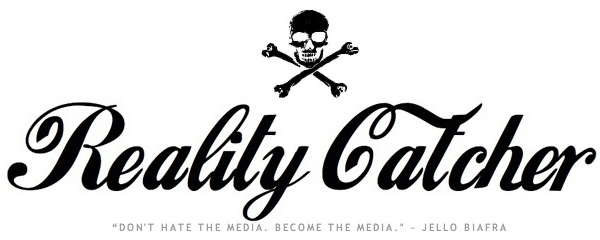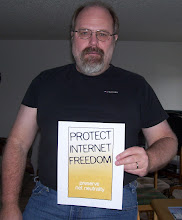 A woman smokes a marijuana cigarette at a pro-cannabis demonstration and march May 4, 2002 in New York City. In New York the pro-cannabis movement has been galvanized by current Mayor Michael Bloomberg's assertion that he had smoked marijuana and 'liked it'. Unless you are the Mayor, however, smoking pot in New York City can get you in a lot of trouble -- thanks to the Mayor's discriminatory policies and a lying police force
A woman smokes a marijuana cigarette at a pro-cannabis demonstration and march May 4, 2002 in New York City. In New York the pro-cannabis movement has been galvanized by current Mayor Michael Bloomberg's assertion that he had smoked marijuana and 'liked it'. Unless you are the Mayor, however, smoking pot in New York City can get you in a lot of trouble -- thanks to the Mayor's discriminatory policies and a lying police forceNYC's Staggering Arrest Rate For Pot Achieved By Police Deception and Scams
By Steven Wishnia, AlterNet. Posted May 9, 2008
New study says New York's cannabis crackdown is both racist and fraudulent -- and that more have been arrested under Bloomberg than Giuliani
New York City has been the pot-bust capital of the world for a decade, since Rudolph Giuliani's decision to make public toking a top police priority. A new study sponsored by the New York Civil Liberties Union says the city's cannabis crackdown is both racist and fraudulent.
New York police have arrested almost 400,000 people for misdemeanor marijuana possession in the last decade. Last year, there were 39,700 such arrests. The vast majority of those seized have been black and Latino men, most under 25. And according to the NYCLU study, released last week, thousands of them are the victims of police scams, falsely charged with possession of marijuana "burning or open to public view."
"We are confident in estimating that about two-thirds to three-quarters of the people arrested were not smoking marijuana," the study says. "Usually they were doing their utmost to keep their marijuana concealed, generally deep inside their clothing." The authors, sociologist Harry Levine of Queens College and activist Deborah Peterson-Small of the organization Break The Chains, say that conclusion is "based on the experience of legal aid and public-defender attorneys who have handled thousands of these cases, along with that of the police officers and arrestees we interviewed."
New York State decriminalized marijuana in 1977. That reduced possession of less than 25 grams is a violation, carrying a $100 fine and no criminal record. But smoking or possession in public is a misdemeanor, punishable by up to three months in jail. So in order to get around the constitutional restrictions on searches and find a valid reason to make an arrest, police have to use deception.
A typical ruse is for police to stop someone near a suspected marijuana-sales site and tell them something along the lines of "We saw you coming out of the weed spot. If you have anything on you that you're not supposed to have, give it to me and all I'll give you is a ticket." If the suspect falls for the ruse and hands over his marijuana, he is then arrested for displaying it in public view. Though most people charged with misdemeanor pot possession do not receive jail sentences, they often have to spend up to 24 hours in jail before arraignment, and they acquire a permanent arrest record.
Police and defenders of the crackdown say that making large numbers of arrests for minor offenses has reduced major crimes. Other benefits include that it's an easy way for police supervisors to show their precincts' productivity, it's an easy way for individual officers to get overtime-rookie New York cops get paid only $25,000 a year, so "collars for dollars" augment that -- and it keeps a reserve of officers occupied.
Peterson-Small states bluntly that the crackdown is "racist," a legacy of the Giuliani principles that "we will tame New York by bringing the black and brown people under control" and "no offense is too petty." Of the people arrested for misdemeanor pot possession from 1997 through 2006, five out of six were black or Latino, in a city that is almost half white and Asian. Nine out of ten were male, and most were aged 16 to 25. And over the years, the focus has shifted from Midtown Manhattan and Greenwich Village to outlying black and Latino areas. The police precincts in upper Manhattan's Washington Heights, the west Bronx, Jamaica and St. Albans in southeastern Queens, and the "Black Brooklyn" neighborhoods of Bedford-Stuyvesant, Brownsville, and East New York regularly turn in more than 1,000 petty pot busts a year each. Though there is no evidence that black New Yorkers smoke more pot than white ones -- nationally, the rate of use among young adults is slightly higher for whites, at least according to government surveys -- the city's marijuana-arrest rate for blacks is more than five times what it is for whites.
Another worry is that the arrests tag thousands of young black and Latino men as criminals. The study terms the crackdown "Head Start for prison and unemployment." The Head Start preschool program, it notes, intends to "familiarize and socialize young children in the routines and expectations of school systems"; the marijuana-arrest program works to "familiarize, socialize, and prepare disadvantaged black and Latino teenagers and young adults from poor neighborhoods for the routines and expectations of the police, court, jail, and prison system."
The study also calls the policy a waste of money -- at an estimated $1,500 to $2,500 per arrest, it cost the city $60 to $100 million last year, at a time when Mayor Michael Bloomberg is slashing the city budget and closing libraries on weekends. Peterson-Small adds that it violates the spirit of the state's decriminalization law. The ban on public smoking, she says, was originally intended to apply only to people creating a public nuisance, not to someone lighting up discreetly "in the alley behind a jazz club."
Though the city's cannabis crackdown is Rudolph Giuliani's legacy, Bloomberg has continued it. Bloomberg has a reputation as a moderate, as less racist and draconian than Giuliani, and he famously declared "You bet I did -- and I enjoyed it" when asked if he had ever smoked pot. But in his first six years in office, more people have been arrested for misdemeanor possession than in Giuliani's entire eight-year regime.
Steven Wishnia is the author of "Exit 25 Utopia," "The Cannabis Companion" and "Invincible Coney Island." He lives in New York.
The original story on AlterNet:
http://www.alternet.org/story/84515/






























No comments:
Post a Comment